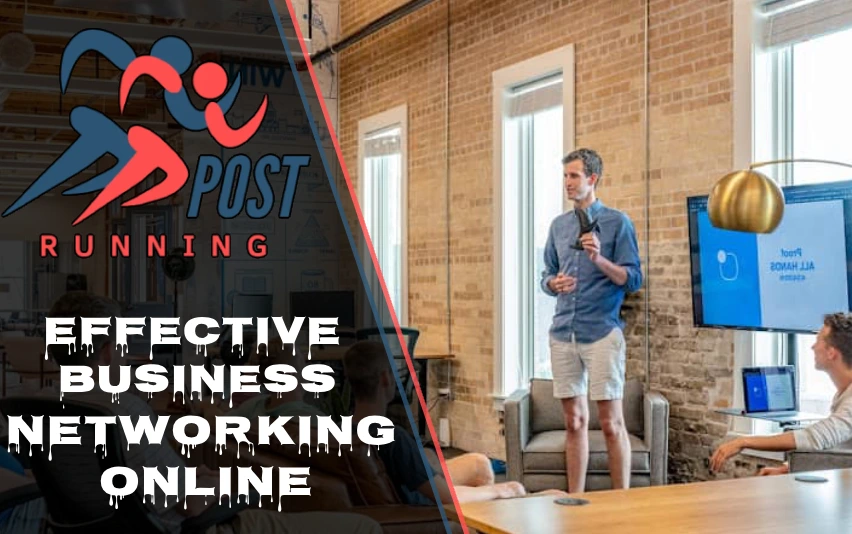Are you sitting on a brilliant business idea but don’t know where to find the money to make it a reality? You’re not alone. Funding is often the biggest hurdle for aspiring entrepreneurs. But don’t worry! There are plenty of options out there for where to find funding for your business idea. From traditional bank loans to modern crowdfunding platforms, we’ll explore all the avenues available to help you turn your dream into a thriving business.
Introduction
Every great business starts with an idea, but it’s the funding that breathes life into that idea. Where to find funding for your business idea is a crucial question that can make or break your entrepreneurial journey. It’s not just about getting money; it’s about finding the right kind of funding that aligns with your business goals and values.
There’s a whole world of funding sources out there. Some are as close as your own pocket, while others might come from investors halfway across the globe. From bootstrapping with your savings to pitching to venture capitalists, each funding option has its own set of pros and cons. Let’s dive in and explore where to find funding for your business idea, so you can choose the path that’s best for you.
Self-Funding Options
Sometimes, the best place to start looking for funding is in your own wallet. Self-funding, also known as bootstrapping, is a popular choice for many entrepreneurs. It’s all about using your personal resources to get your business off the ground.
One of the most straightforward self-funding options is using your personal savings. If you’ve been squirreling away money for a rainy day, now might be the time to put it to work. You could also consider selling assets you don’t need or taking out a personal loan. Some entrepreneurs even use their credit cards to fund their startup costs, though this can be risky if not managed carefully.
Bootstrapping techniques go beyond just using your savings. It’s about being resourceful and finding ways to minimize costs. This might mean working from home instead of renting an office, using free software instead of expensive subscriptions, or bartering services with other businesses.
The big advantage of self-funding is that you keep full control of your business. There’s no one to answer to but yourself. Plus, it shows potential future investors that you’re committed and willing to take risks. However, it’s not all roses. Self-funding can put a strain on your personal finances and limit how quickly your business can grow. It’s important to weigh these pros and cons carefully before deciding to self-fund.
Family and Friends
When looking at where to find funding for your business idea, don’t overlook the people closest to you. Family and friends can be a great source of initial funding. They know you, trust you, and are likely to be more flexible than traditional lenders.
Getting funding from loved ones can be a win-win. You get the money you need to start your business, often with favorable terms. Your family and friends get the chance to invest in something meaningful and potentially profitable. It can also be faster and less formal than other funding options.
But beware, mixing business with personal relationships can be tricky. There’s always the risk that things could go south, potentially damaging important relationships. To avoid this, it’s crucial to treat any arrangement with family and friends as professionally as you would with a bank or investor.
Here are some best practices for formalizing arrangements with family and friends:
- Put everything in writing
- Be clear about whether it’s a loan or investment
- Set realistic expectations about returns and timelines
- Consider using a third party to mediate the agreement
Remember, even if Uncle Bob says, “Pay me back when you can,” it’s in everyone’s best interest to have clear terms from the start.
Traditional Lending Sources
When it comes to where to find funding for your business idea, traditional lending sources are often the first stop for many entrepreneurs. These include banks, credit unions, and other financial institutions that offer business loans.
Bank loans are a classic funding option. They typically offer lower interest rates compared to other funding sources, especially if you have a good credit score. However, they also tend to have strict requirements. You’ll need a solid business plan, good credit history, and often some form of collateral. For new businesses, this can be a high bar to clear.
If you’re finding it hard to qualify for a traditional bank loan, consider SBA-backed loans. The Small Business Administration (SBA) partners with banks to offer loans with more favorable terms for small businesses. These loans are partially guaranteed by the government, which makes banks more willing to lend to startups and small businesses.
Commercial finance companies are another option. They’re typically more flexible than banks and may be willing to take on riskier loans. However, this flexibility often comes with higher interest rates.
When exploring traditional lending sources, remember:
- Shop around for the best rates and terms
- Prepare a detailed business plan and financial projections
- Be ready to provide collateral or a personal guarantee
- Consider working with a financial advisor to navigate your options
Equity Financing
If you’re wondering where to find funding for your business idea and you’re open to giving up a piece of the pie, equity financing might be the way to go. This involves selling a portion of your company to investors in exchange for capital.
Angel investors are often the first port of call for equity financing. These are typically wealthy individuals looking to invest in promising startups. They not only provide capital but often bring valuable expertise and connections. Angel investors usually invest in the early stages of a business, taking on more risk in hopes of higher returns.
For businesses that are a bit further along, venture capital firms might be an option. These are professional investment companies that pool money from multiple investors to fund startups with high growth potential. Venture capitalists (VCs) typically invest larger amounts than angel investors and often take a more active role in the company’s management.
The main advantage of equity financing is that you don’t have to repay the money if your business fails. It also brings in partners who have a vested interest in your success. However, the big downside is that you’re giving up a portion of ownership and control of your company. You’ll need to be comfortable with sharing decision-making power and profits.
Before pursuing equity financing, consider:
- How much control you’re willing to give up
- Whether you’re ready for the scrutiny and pressure that comes with outside investors
- If your business model aligns with the high-growth expectations of most equity investors
Remember, equity financing isn’t just about the money. It’s about finding partners who believe in your vision and can help take your business to the next level.
Crowdfunding
In the digital age, crowdfunding has emerged as an innovative answer to where to find funding for your business idea. It involves raising small amounts of money from a large number of people, typically via the internet.
There are several types of crowdfunding platforms:
- Reward-based (like Kickstarter): Backers receive products or perks in exchange for their support
- Equity-based: Investors receive shares in the company
- Donation-based: People donate to support a cause or project
- Debt-based: Essentially a loan from the crowd
Crowdfunding can be a great way to not only raise funds but also validate your business idea and build a customer base. It allows you to gauge market interest before fully launching your product or service. Plus, it can generate buzz and create a community around your brand.
However, running a successful crowdfunding campaign isn’t easy. It requires a lot of planning, marketing, and community engagement. You’ll need to create compelling content, set realistic goals, and constantly communicate with your backers.
Some key success factors for crowdfunding include:
- Having a unique and appealing product or service
- Creating a strong pitch video and campaign page
- Leveraging your network to get initial momentum
- Offering attractive rewards or equity terms
- Engaging with your backers throughout the campaign and beyond
While crowdfunding can be a powerful tool, it’s not suitable for every business. It works best for consumer-facing products or services that can be easily explained and demonstrated online.
Government Programs and Grants
When exploring where to find funding for your business idea, don’t overlook government programs and grants. These can be excellent sources of non-dilutive funding, meaning you don’t have to give up any equity in your company.
The Small Business Innovation Research (SBIR) program is a great option for tech startups. It’s a highly competitive program that encourages small businesses to engage in federal research and development with the potential for commercialization. The SBIR program is divided into three phases, with increasing funding amounts as you progress.
Similarly, the Small Business Technology Transfer (STTR) program focuses on expanding public/private sector partnerships between small businesses and research institutions. It’s designed to bridge the gap between basic science and commercialization.
But these aren’t the only government funding options. Many federal, state, and local agencies offer grants for specific industries or types of businesses. For example:
- The U.S. Department of Agriculture offers grants for rural businesses
- The Department of Energy provides funding for clean energy innovations
- Many states have economic development grants to encourage job creation
While government grants can be a great source of funding, they often come with strict eligibility requirements and lengthy application processes. It’s important to carefully read the guidelines and ensure your business aligns with the grant’s objectives before applying.
Alternative Funding Sources
If you’re still wondering where to find funding for your business idea, there are several alternative sources worth considering. These options can be particularly useful for businesses that might not qualify for traditional loans or aren’t ready for equity investment.
Microloans are small loans, typically under $50,000, designed for startups and small businesses. They’re often provided by non-profit organizations and community development financial institutions (CDFIs). While the loan amounts are smaller, the requirements are usually less stringent than traditional bank loans.
Peer-to-peer lending platforms connect borrowers directly with individual lenders, cutting out the middleman. These platforms, like Prosper or Funding Circle, can offer more flexible terms and quicker approval processes than traditional banks. However, interest rates can be higher, especially for borrowers with less-than-perfect credit.
Business incubators and accelerators are programs designed to help startups grow. While they don’t always provide direct funding, many offer resources like office space, mentorship, and networking opportunities. Some also offer seed funding in exchange for a small equity stake. Programs like Y Combinator and TechStars have helped launch many successful startups.
When exploring these alternative funding sources:
- Compare terms and rates across multiple platforms or providers
- Read the fine print carefully, especially for peer-to-peer loans
- Consider the non-financial benefits, particularly with incubators and accelerators
- Be prepared to pitch your business idea convincingly
Remember, these alternative sources can be a great stepping stone to larger funding rounds in the future.
Choosing the Right Funding Source
Now that we’ve explored where to find funding for your business idea, how do you choose the right option? The best funding source for your business depends on various factors, including your business stage, industry, growth plans, and personal preferences.
Here are some key factors to consider:
- How much control you want to retain
- How quickly you need the funds
- How much money you need
- Your willingness to take on debt
- Your business’s current stage and growth trajectory
- The non-financial benefits each funding source offers (like mentorship or networking)
It’s crucial to match your funding source to your business stage and needs. For example, if you’re just starting out, self-funding or friends and family might be most appropriate. If you’re looking to scale rapidly, venture capital could be a good fit. If you have a stable business with predictable cash flow, a traditional bank loan might work well.
Regardless of which funding source you’re considering, having a solid business plan and financial projections is crucial. These documents not only help you secure funding but also force you to think critically about your business model and growth strategy.
Your business plan should include:
- A clear description of your product or service
- Market analysis and competitive landscape
- Marketing and sales strategy
- Financial projections (including cash flow, profit and loss, and balance sheet forecasts)
- Management team bios
Remember, different funders will look for different things in your business plan. A bank will focus heavily on your financials, while a venture capitalist might be more interested in your growth potential and exit strategy.
Conclusion
Finding the right funding for your business idea is a crucial step in your entrepreneurial journey. We’ve explored a wide range of options for where to find funding for your business idea, from self-funding and family support to traditional loans, equity financing, crowdfunding, government programs, and alternative sources.
Each funding option has its own set of advantages and challenges. Self-funding gives you complete control but limits your resources. Family and friends can offer flexible terms but risk personal relationships. Traditional loans provide stability but have strict requirements. Equity financing can fuel rapid growth but dilutes ownership. Crowdfunding can validate your idea but requires intense marketing efforts. Government grants offer non-dilutive funding but have complex application processes. Alternative sources can fill gaps but may come with higher costs.
The key is to carefully research and consider each option in the context of your specific business needs and goals. Don’t be afraid to mix and match funding sources as your business grows and evolves. Remember, the decisions you make about funding can have long-lasting impacts on your business’s growth, direction, and ultimate success.
So, take your time, do your homework, and choose wisely. With the right funding in place, you’ll be well on your way to turning your business idea into a thriving reality. Good luck on your funding journey!
Discover more fascinating insights—explore Running Posts Today.















